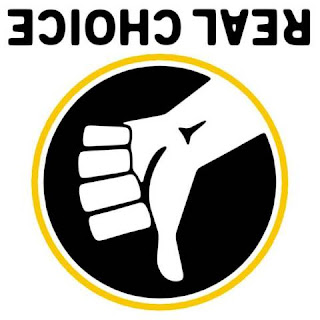"Just One Of Those Things You Say In Opposition": Had the rage so evident on the streets of Auckland on 4 February 2016 been maintained, Jacinda Ardern, Winston Peters, and Labour’s intrepid Trade Minister, David Parker, would not have found it such an easy matter to renege on the undertakings Labour and NZ First had given on that day when it seemed prudent for Mr Parker to stand outside the US Consulate, microphone in hand, and pledge Labour to the defence of New Zealand’s sovereignty against trans-national corporate predators.
THE HARD-LEFT of New Zealand politics enjoys nothing more
than enumerating the shortcomings of the Labour Party. No matter that the
hard-left itself represents only a tiny fraction of the electorate (a
deficiency confirmed with crushing finality whenever it fields candidates in a
general election). Not to worry. This past week [i.e. the week ending 27
January 2018] the Labour-NZF coalition government’s decision to sign-up to the
Comprehensive and Progressive Transpacific Partnership (CPTPP) has afforded its
hard-left critics multiple opportunities to, once again, rail against the
manifold shortcomings of social-democracy.
Were they of a mind, however, the despised social-democrats
could mount a telling critique of the hard-left’s own dereliction of political
duty. The focus of such criticism would be the hard-left’s failure to “maintain
the rage” against the Trans-Pacific Partnership which, in February 2016, had
just been demonstrated with truly exceptional power on the streets of Auckland.
So effective had the campaign of the “It’s Our Future”
organisation been in rousing public indignation at the TPP’s multiple assaults
on New Zealand sovereignty, that the Andrew Little-led Labour Party felt
obliged to step away from the long-standing bi-partisan consensus on free trade
and come out openly against its ratification. It was joined in this radical
oppositional stance by Winston Peters’ NZ First Party and the Greens.
Foreshadowed in this ad-hoc anti-TPP multi-party alliance, was the
Labour-NZF-Green government sworn into office in October 2017.
Was the hard-left quick to warn the still-fizzing anti-TPP
demonstrators that this sudden display of radicalism on the part of Labour, NZ
First and the Greens was not to be trusted? Did it urge the movement to shift
its focus from the streets of Auckland to Parliament Grounds in Wellington? Was
a concerted campaign proposed to pressure MPs directly by besieging the House
of Representatives and impeding the Select Committee hearings into the
legislation ratifying the TPP? Was the hard-left able, as its predecessors had
been in the days of the Halt All Racist Tours organisation, to transform
participation in a single day of rage into a permanent reserve army of
protestors, capable of being mobilised at a moment’s notice?
No, it was not.
Had it been, Jacinda Ardern, Winston Peters, and Labour’s
intrepid Trade Minister, David Parker, would not have found it such an easy
matter to renege on the undertakings Labour and NZ First had given on the day
when it seemed prudent for Mr Parker to stand outside the US Consulate, microphone in hand, and pledge Labour to the defence of New Zealand’s
sovereignty against trans-national corporate predators.
So, what did the hard-left do?
Well, it did exactly what it so loudly condemns the
centre-left for doing: it attempted to engage constructively with the many and
varied processes of institutional power so as to get the firmest possible grip
on the levers of political influence. Even now, the effective leader of the
anti-TPP movement, Professor Jane Kelsey, is cautioning her followers against
precipitate action:
“And yes, I know there are people who want to get out on the
streets. We need to think about when and where that might have maximum effect.
But we can’t go off half-cocked. People need to be confident that they know why
the TPPA-11 is as bad as the original, and believe that their voices
collectively can make a difference. And we can.”
The difference between hard-leftists and social-democrats,
however, is that although they could mount a critique of the hard-left’s
failure to maintain the momentum of the 2016 protests, the social-democrats
haven’t. Why? Because they understand that, at some point, rage in the streets
must give way to the demands of practical politics.
Once Labour, NZ First and the Greens had all publicly
committed themselves to opposing the TPP – as currently configured – the
hard-left’s ability to turn people out into the street evaporated almost
immediately. Maintaining the rage for months on end was never an option.
Fighting TPP was quite unlike fighting Apartheid – which
could be relied upon to keep the world horrified with its constant and ever-worsening
acts of racial oppression. A year ago, when Donald Trump pulled the USA out of
the TPP, most of its opponents – and even some of its supporters – believed it
was dead. And yet – it lives!
The tenacity with which the proponents of the TPP have fought
for their project should, perhaps, cause the hard-left to pause from their
castigation of Labour and its allies. Is it really credible to suggest that so
many countries have worked so hard, for so long, to secure their own economic
and political subordination?
Perhaps, once they had made themselves familiar with their
fellow CPTPP partners’ arguments, Ardern, Peters and Parker realised that
‘maintaining the rage’ wasn’t an option for them either. Perhaps, in the face
of massive Australian and Japanese economic pressure they reluctantly settled
for the best deal they could get.
This essay was
originally published in The Press of
Tuesday, 30 January 2018.






